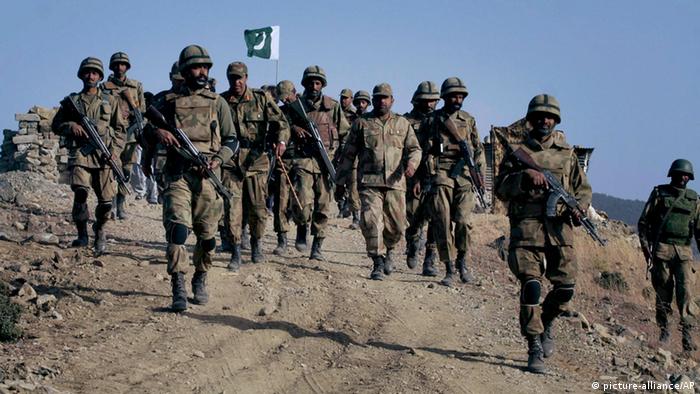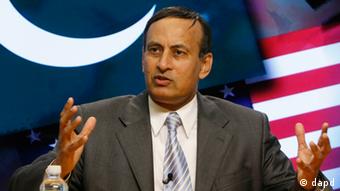Husain Haqqani, Pakistan’s former ambassador to the US, is a fierce critic of his country’s military establishment. In a DW interview, Haqqani calls for a “reimagining” of Pakistan’s Islamic state ideology.
DW: In your recently published book, Reimagining Pakistan, you said that Pakistan should be a secular state. Is it really attainable?
Husain Haqqani: The idea of my latest book was born in a conversation many years ago, when Salman Rushdie [novelist] said, “If nations are imagined communities, Pakistan is poorly imagined.” There were some valid criticisms about how Pakistan was created in a hurry. The generation before us had to suddenly stop being Indian and start being Pakistani; they needed an ideology. I am a Pakistani by birth, so I don’t need it.
In my book, I thought how I could contribute to the process of reimagining Pakistan. The good thing about imagination is that what is poorly imagined can be reimagined. That is why I wrote this book.
70 years of ideological orientation cannot be reversed overnight. Any attempt to phase out the invoking of religion as ideology would have to be gradual. Pakistan’s civilian and military leaders would have to work together to ensure over time that Pakistanis realize the pitfalls of their contrived national narrative. The first step in that direction would be to trigger a debate over alternative paths for the country, something that has almost been shut down since former military dictator General Zia-ul-Haq’s era.
There are those who would argue that the state ideology has helped Pakistan survive against the threat of disintegration, especially after the loss of Bangladesh. But that suggests that Pakistan, as a nation and as a state, cannot sustain itself except through ideological rhetoric, which, in turn, must be sustained through issues that mean little for most people in the 21st century. If that is the case, Pakistan has no choice but to stay mired in conceptual argumentation as Islamization has proved to be a recipe for unceasing internal conflict.
The alternative is for Pakistan to evolve as a functional, territorial nation state and a working federation of its various component ethnicities and nationalities. For that to happen, its leaders must take a stand against the unidimensional preoccupation with ideology.


